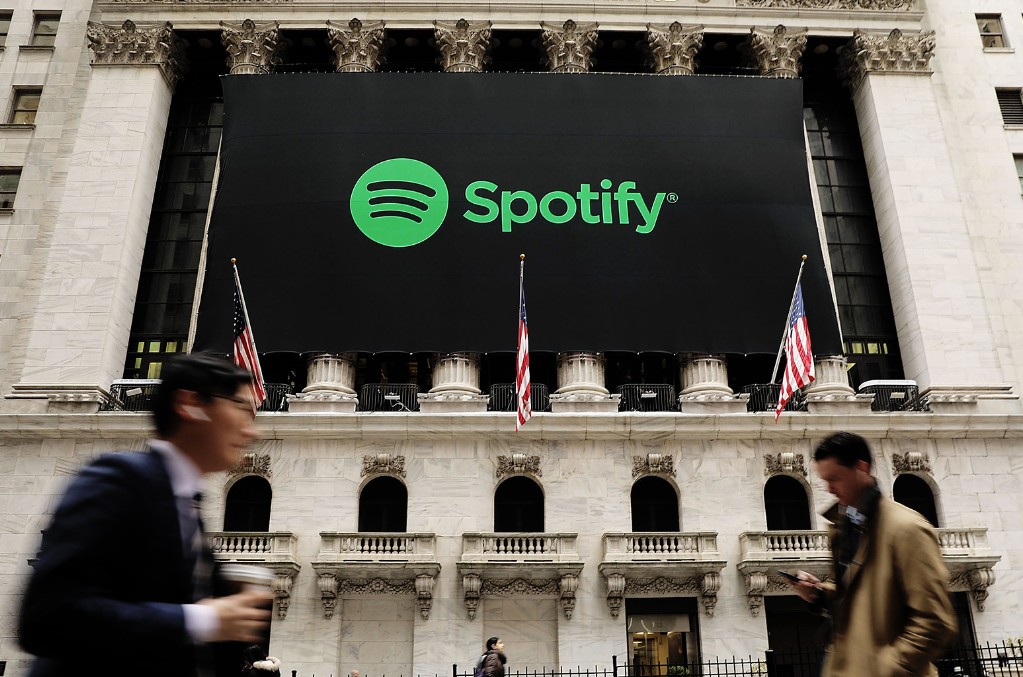Guggenheim Partners and Morgan Stanley have nearly a $10 billion difference between their valuation, largely rooted in forecasts on the streaming platform’s podcast strategy.
Spotify is getting great reviews on Wall Street, even though analysts don’t agree on the company’s value. Leading firms Guggenheim Partners and Morgan Stanley have nearly a $10 billion difference between their valuations, with Guggenheim claiming the company is worth $41.5 billion and Morgan Stanley saying $51.1 billion. The difference is partly rooted in differing forecasts on Spotify’s podcasting strategy.
On Monday, Guggenheim gave Spotify’s stock a sell rating — not because the company is doing poorly, but because its share price has exploded roughly 73% in 2020. Guggenheim also raised its price target from $170 to $223 per share, 15.8% below the $258.16 closing price on Tuesday (June 30). An investor who bought Spotify on the first day of trading on the New York Stock Exchange on April 3, 2018, could sell today at a nearly 56% gain.
Guggenheim analysts recognize Spotify’s podcast strategy but believe competition with Apple Music and Amazon — not to mention iHeartRadio — could hurt its share price. But, moreso, they advise that “even the most bullish of investors should maintain valuation discipline and see risk-reward as relatively unattractive at current levels.” Put another way, Guggenheim is saying it’s been a fun ride, but investors should sell before other people come to the same conclusion.
Conversely, investors could be swayed by Morgan Stanley analysts who believe the market is slightly underpricing Spotify. In a report released Monday, Morgan Stanley analysts maintained their “overweight” rating (the price has upside and deserves a greater share of a portfolio or index) and raised their Spotify price target from $190 to $275 per share, representing 6.5% upside at the current price and 23.3% higher than Guggenheim’s. In its “base case,” the analysts forecast about 270 million subscribers by 2024 (from 124 million at the end of the first quarter) and believe gross margin can expand at “nearly 30%” annually through 2024, giving Spotify positive earnings before interest and taxes (EBIT). Its optimistic scenario — the “bull case” — calls for about 340 million subscribers by 2024, gross margin growth “exceeding 30%” and positive EBIT by 2021.
Spotify is betting podcasts will help turn the platform into a one-stop-shop for audio, whether music or voice. In May, it signed an exclusive licensing deal for the Joe Rogan Experience podcast reported to be worth $100 million. This month Spotify landed exclusives with Kim Kardashian West for a podcast on criminal justice reform and an exclusive deal with Warner Bros. to create original, scripted series for DC Comics superheroes. These name-brand podcasts add to an already strong stable of podcasts from three key acquisitions over the past year and a half: Bill Simmons’ The Ringer, Gimlet Media and Parcast.



